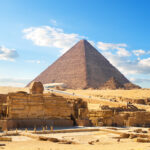Teach English in Egypt
Teaching English in Egypt is a rewarding and enriching experience that goes beyond the confines of the classroom. Egypt, with its rich history, vibrant culture, and warm hospitality, provides a unique backdrop for educators seeking an unforgettable adventure. By imparting the invaluable skill of English communication, you will not only empower your students but also contribute to their personal and professional growth.
The demand for English language proficiency is rising in Egypt, opening up numerous opportunities for educators to make a lasting impact. Engaging with students from diverse backgrounds fosters a cross-cultural exchange that broadens both your perspectives and theirs. Moreover, Egypt’s awe-inspiring landmarks such as the Pyramids of Giza and the Sphinx, along with its bustling markets and delectable cuisine, offer a tapestry of experiences outside the classroom. Teaching English in Egypt allows you to play a crucial role in shaping the future while immersing yourself in a fascinating and welcoming environment.
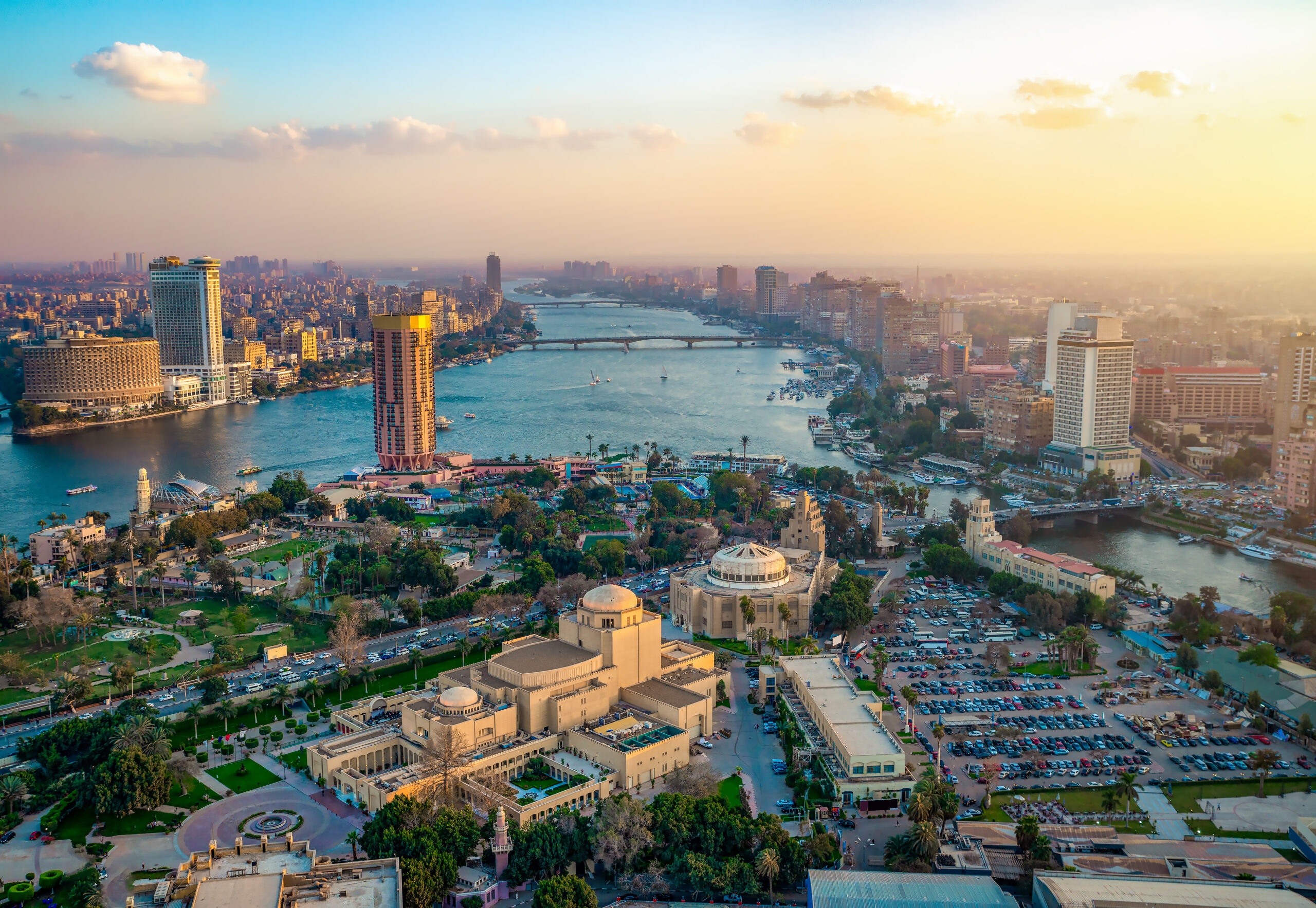
Popular Cities
Egypt offers several vibrant cities where teaching English can be a fulfilling experience. Here are three popular cities for English language educators:
Cairo
As the capital and largest city of Egypt, Cairo is a bustling metropolis that seamlessly blends ancient history with modern living. With numerous language schools, international schools, and universities, Cairo provides a plethora of opportunities for English teachers. The city’s vibrant cultural scene, historic landmarks like the Pyramids of Giza, and a dynamic atmosphere make it an exciting destination for those seeking both professional and personal growth.
Alexandria
Nestled along the Mediterranean coast, Alexandria is known for its historical significance and cosmopolitan atmosphere. The city boasts a rich cultural heritage, featuring landmarks such as the Qaitbay Citadel and the Bibliotheca Alexandrina. Teaching English in Alexandria offers a unique experience, allowing educators to engage with students in a more relaxed coastal setting while exploring the city’s historical and modern attractions.
Luxor
For those who appreciate a more tranquil and historical setting, Luxor is an excellent choice. Often referred to as the “world’s greatest open-air museum,” Luxor is home to ancient temples, tombs, and monuments like the Karnak Temple and the Valley of the Kings. Teaching English in Luxor provides a serene environment with a deep connection to Egypt’s rich history, offering a unique perspective for both educators and students alike.
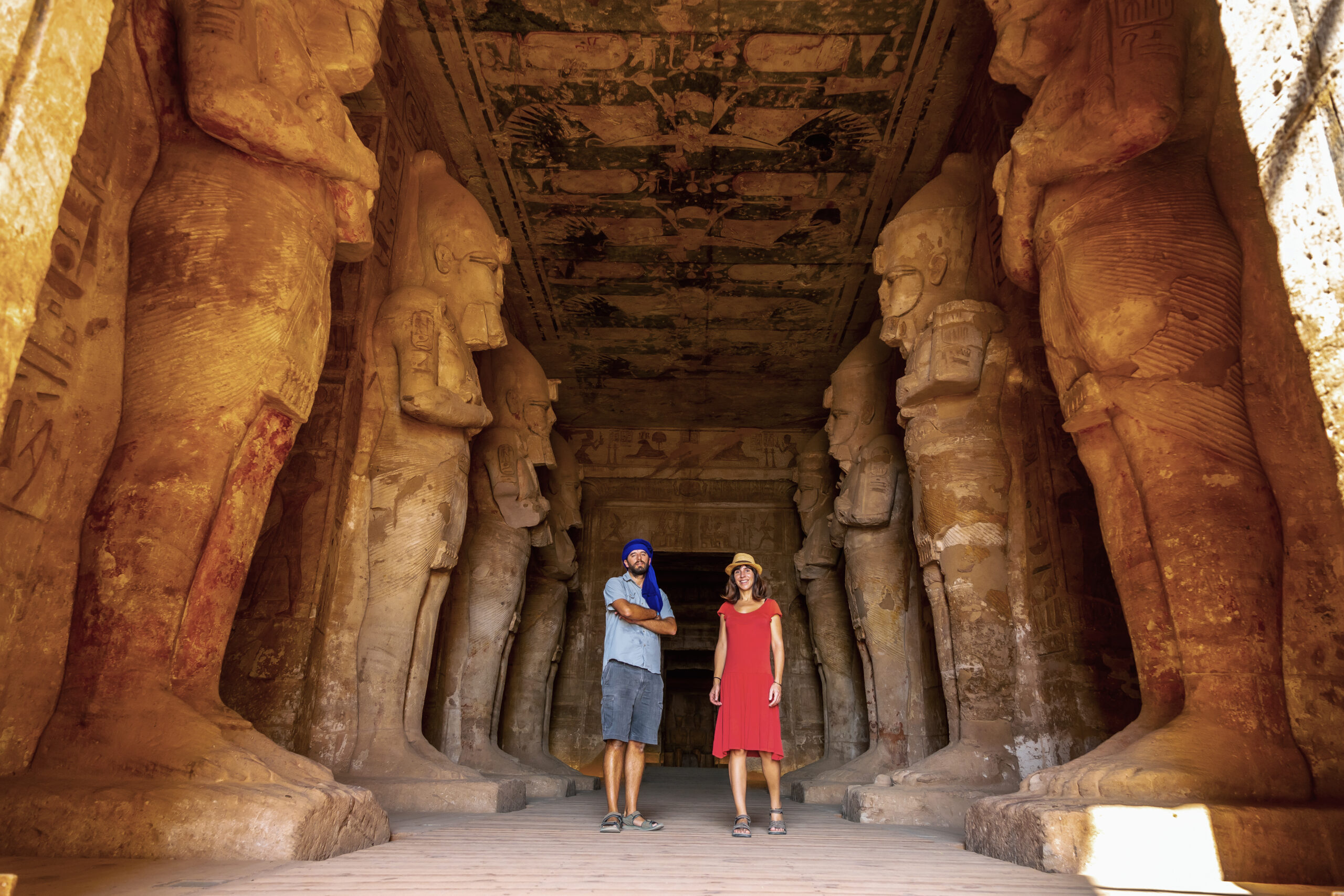
Most Popular Things to See and Do
Egypt is a treasure trove of ancient wonders, vibrant culture, and natural beauty. Here are 10 popular things to see and do in Egypt:
Pyramids of Giza: No visit to Egypt is complete without marvelling at the Pyramids of Giza, including the Great Pyramid of Khufu, the Pyramid of Khafre, and the Pyramid of Menkaure. The Sphinx, guarding these monumental structures, adds to the mystique.
Egyptian Museum in Cairo: Explore the vast collection of ancient artifacts, including the treasures of Tutankhamun, at the Egyptian Museum in Cairo. The museum provides a fascinating journey through Egypt’s history.
Nile River Cruise: Embark on a cruise along the Nile River, the lifeblood of Egypt. Enjoy the scenic views, visit ancient temples along the riverbanks, and experience the unique charm of river life.
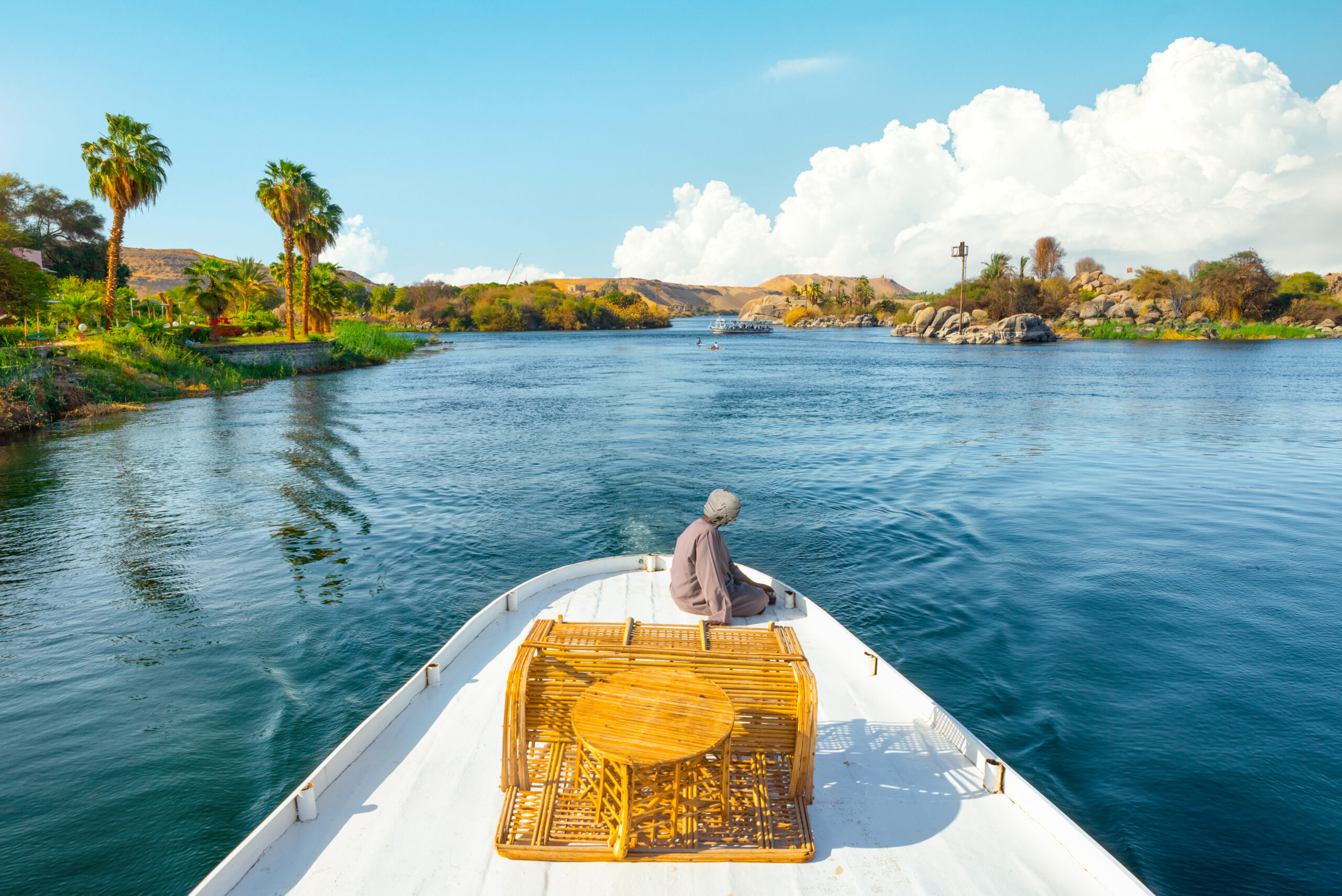
Luxor and Karnak Temples: Visit Luxor, known as the “world’s greatest open-air museum,” and explore the impressive Luxor and Karnak Temples, showcasing the grandeur of ancient Egyptian architecture.
Valley of the Kings: Discover the Valley of the Kings on the west bank of the Nile in Luxor, where many pharaohs were laid to rest in elaborately decorated tombs, including the famous tomb of Tutankhamun.
Abu Simbel Temples: Marvel at the colossal Abu Simbel Temples, constructed by Ramses II, located near the Sudanese border. The temples are renowned for their colossal statues and intricate carvings.
Diving in the Red Sea: Explore the underwater wonders of the Red Sea, renowned for its vibrant coral reefs and diverse marine life. Popular diving spots include Sharm El Sheikh and Hurghada.
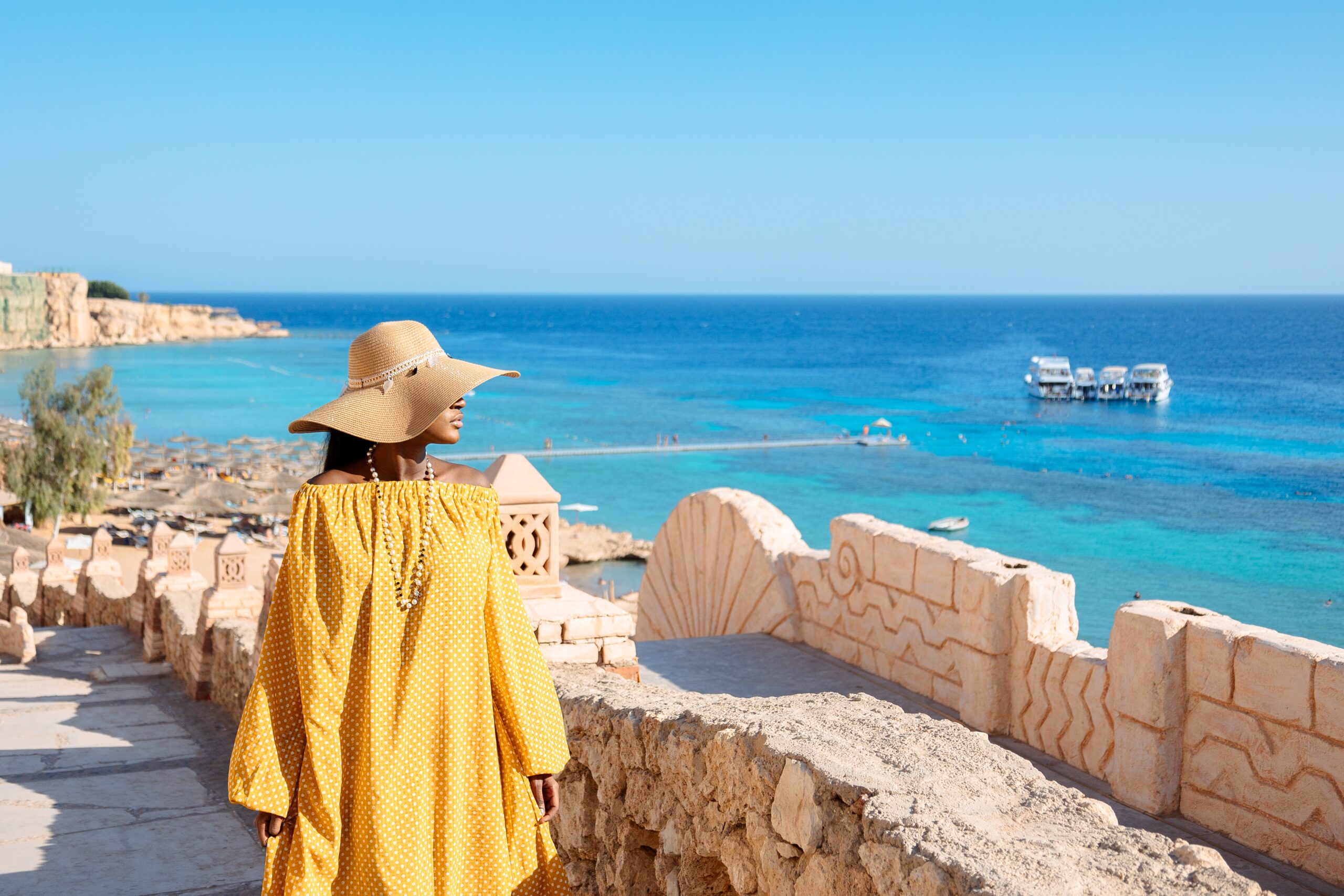
Khan El Khalili Bazaar: Immerse yourself in the vibrant atmosphere of Cairo’s Khan El Khalili Bazaar, where you can shop for traditional crafts, spices, jewelry, and experience the lively street life.
Siwa Oasis: Escape to the tranquility of Siwa Oasis, a remote desert paradise with unique landscapes, salt lakes, and the historic Oracle Temple of Amun.
Coptic Cairo: Visit Coptic Cairo to explore ancient churches, including the Hanging Church (Saint Virgin Mary’s Coptic Orthodox Church), and the Coptic Museum, offering insights into Egypt’s Christian history.

The Food
Egyptian cuisine is a delightful blend of flavours, drawing inspiration from the country’s rich history and diverse cultural influences. Here are five popular Egyptian foods:
Koshari: A beloved national dish, Koshari is a hearty and flavourful vegetarian dish that consists of a mix of rice, lentils, chickpeas, and macaroni, topped with spicy tomato sauce, caramelized onions, and crispy fried onions. It’s a delicious and filling comfort food.
Ful Medames: A nutritious and satisfying dish, Ful Medames is made from fava beans cooked with garlic, olive oil, and various spices. It is typically served with pita bread and can be enjoyed for breakfast or as a snack.
Mahshi: Mahshi refers to stuffed vegetables, and the filling often includes a mixture of rice, minced meat, herbs, and spices. Common vegetables used for Mahshi include grape leaves, bell peppers, zucchini, and eggplants. It’s a flavourful and versatile dish.
Molokhia: Molokhia is a green leafy vegetable that is often used to make a hearty soup. The leaves are finely chopped and cooked with garlic and coriander, resulting in a thick and savoury stew. It is usually served over rice or with bread.
Hawawshi: A popular street food, Hawawshi is a type of Egyptian sandwich that features spiced minced meat, usually beef or lamb, stuffed inside flatbread and baked or grilled. It’s a delicious and convenient option for those on the go.
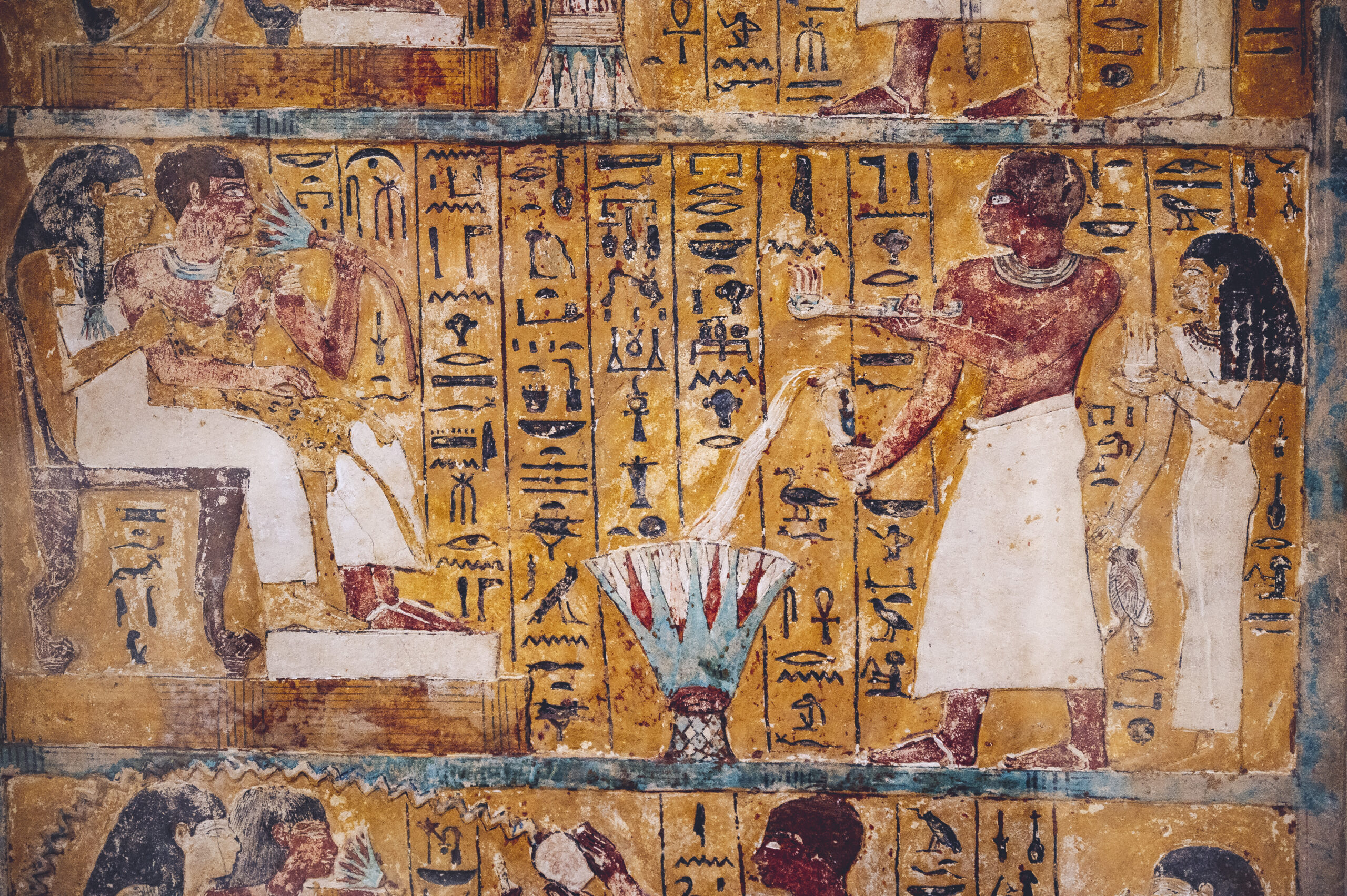
Egyptian People and Culture
Historical Legacy: Egyptians take great pride in their ancient civilization, which has left an indelible mark on world history. The pyramids, Sphinx, and numerous temples stand as testament to the country’s rich cultural heritage.
Hospitality: Hospitality is a cornerstone of Egyptian culture. Guests are warmly welcomed, and it is customary to offer refreshments and share meals. Egyptians are known for their friendliness and openness.
Family Values: Family holds significant importance in Egyptian culture. Extended families often live close to each other, and family gatherings are frequent, reinforcing a strong sense of kinship and support.
Traditional Clothing: While modern Western-style clothing is prevalent, traditional clothing is still worn, especially during cultural or religious events. For example, women may wear colourful kaftans or abayas, and men might wear galabeyas.
Artistic Expression: Egyptians have a long tradition of artistic expression, seen in various forms such as literature, music, dance, and visual arts. Modern Egyptian cinema has gained international recognition, and traditional music and dance are integral to cultural celebrations.
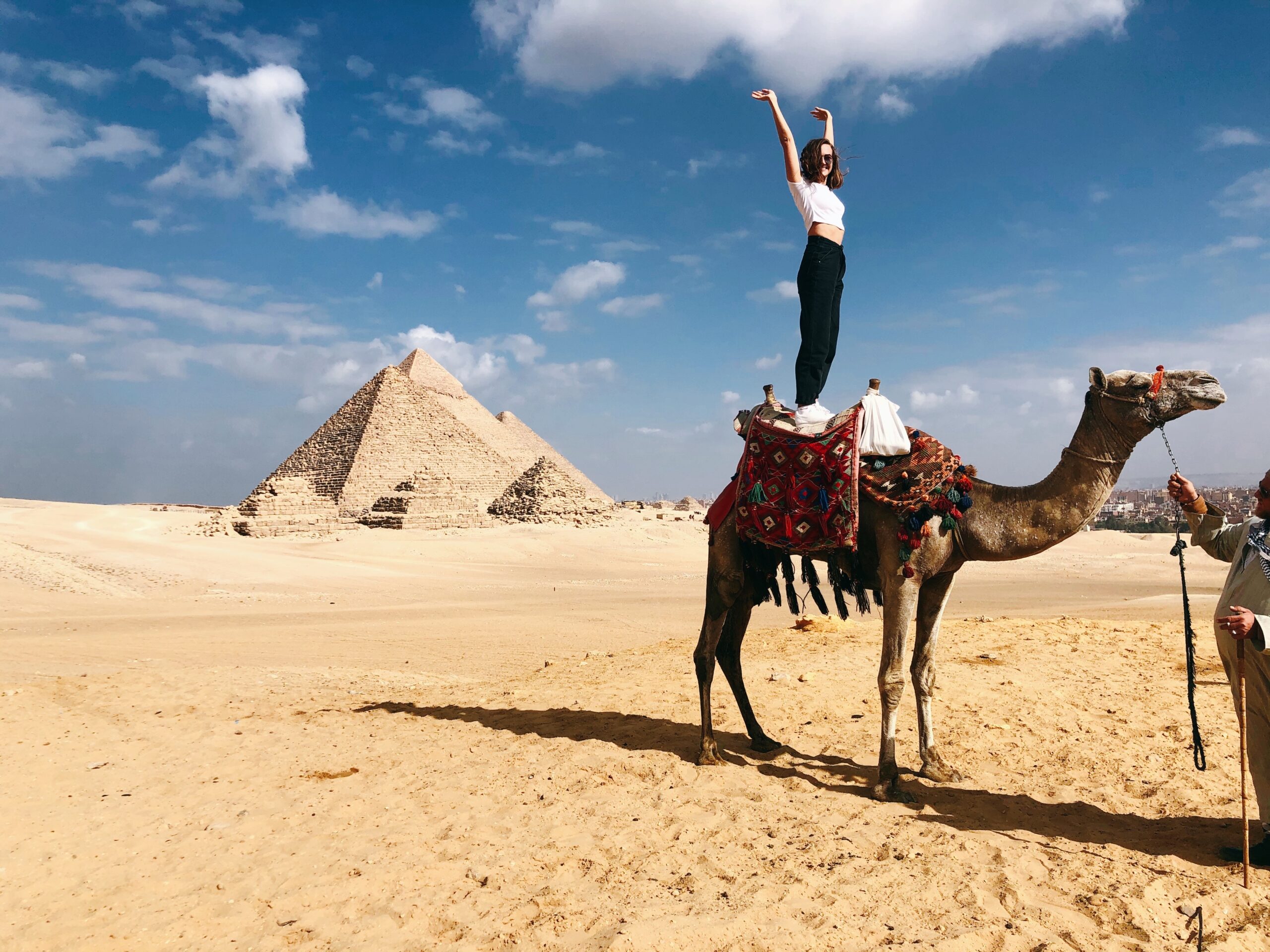
Qualifications
An internationally recognised TESOL Certificate will be required to teach English in Egypt.
Get Started Today
Teaching English in Egypt is an incredibly rewarding endeavour, offering a unique blend of historical richness, warm hospitality, and a chance to make a lasting impact on the lives of eager learners. Egypt’s vibrant culture, encompassing ancient wonders like the Pyramids of Giza and bustling markets, creates an enchanting backdrop for educators.
The demand for English language proficiency is on the rise, providing abundant opportunities for professional growth and cultural exchange. Engage with students who are enthusiastic about learning, experience the renowned hospitality of the Egyptian people, and immerse yourself in a society where tradition meets modernity. Teaching in Egypt not only allows you to contribute to the educational landscape but also invites you to explore a nation with a rich tapestry of history, diverse landscapes, and welcoming communities.



















